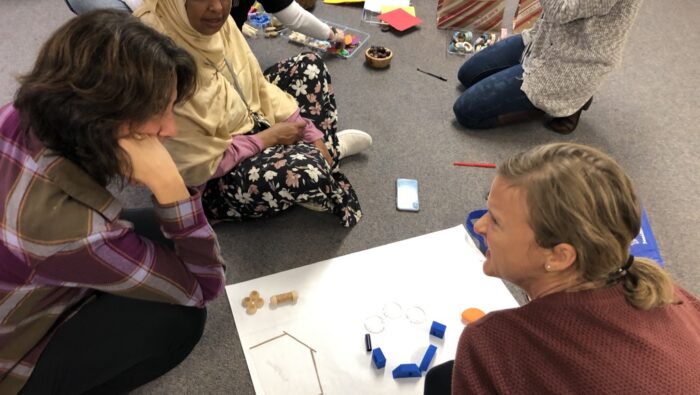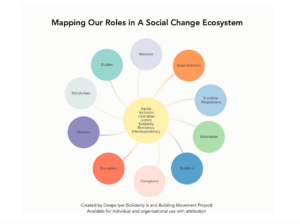
A CALL TO ACTION
Recent events have put the position and treatment and oppression of Black people front and center. Children are watching and listening, looking to adults to know how to act, what to say and how to feel about recent events. Adults who work with young children, particularly adults from the dominant culture, have an opportunity and a responsibility to think, to reflect and to act in ways that help children see the humanity in all people.
On May 31st, Mayor Ted Wheeler held a press conference in collaboration with community leaders on the impact of the demonstrations in Portland’s black communities. In the video recording of the conference, KairosPDX Executive Director, Kali Ladd, speaks powerfully about the affects of oppressive systems on children and about children as the hope for the future. You can listen to her remarks in the linked video below.
“Collectively, our children get one step closer to seeing the humanity of one another and this is everything. I believe that when a white child can see the humanity of my Black son, it becomes much harder to crush him with their knees.”
Kali Thorne Ladd, in her remarks on how hiring teachers of color in our schools might one day prevent police brutality.
A role for everyone
Social justice and social change work requires action. Sometimes people fail to act because they perceive that there is only one way to act for social justice. The diagram below shares a number of possible roles in Social Change work. What role might you practice within your community?
DOING YOUR OWN WORK
Though the early learning field is among the most diverse workforces in the country, many teachers working with young children, particularly in the elementary grades, are White women. As White women, in a system of structural racism, we cannot but help hold conscious and unconscious biases and beliefs that contribute to the oppression of People of Color. It is vital for White women in early learning to work individually and in collaboration with others to understand issues of race and privilege and to actively build educational environments and experiences that honor individuals, contribute to supportive communities, and help children recognize the humanity in others. How will you begin or continue your work?
“Our words today can save children’s lives tomorrow.”
Kali Thorne Ladd
An incomplete reading list includes…
- DeAngelo, Robin (2018). White Fragility: Why It’s So Hard for White People to Talk About Racism
- Kahn-Cullors, Patrisse & Bandele, Asha (2017). When They Call You A Terrorist. A Black Lives Matter Memoir.
- Oluo, Ijeoma (2018). So You Want To Talk About Race?
- Derman-Sparks, Louise Ramsey, Patricia (2011, 2nd Edition). What If All The Kids are White? Anti-Bias Multicultural Education with Young Children and Families.
- Hammond, Zaretta (2014). Culturally Responsive Teaching and The Brain: Promoting Authentic Engagement and Rigor Among Culturally and Linguistically Diverse Students.
What’s on your reading list? We welcome your suggestions at connect@teachingpreschoolpartners.org